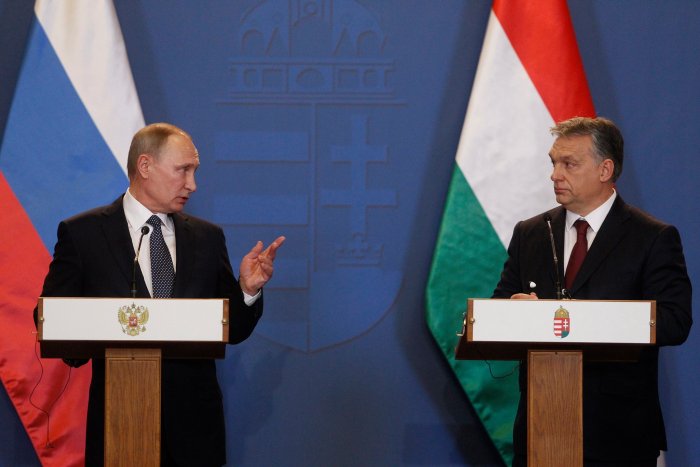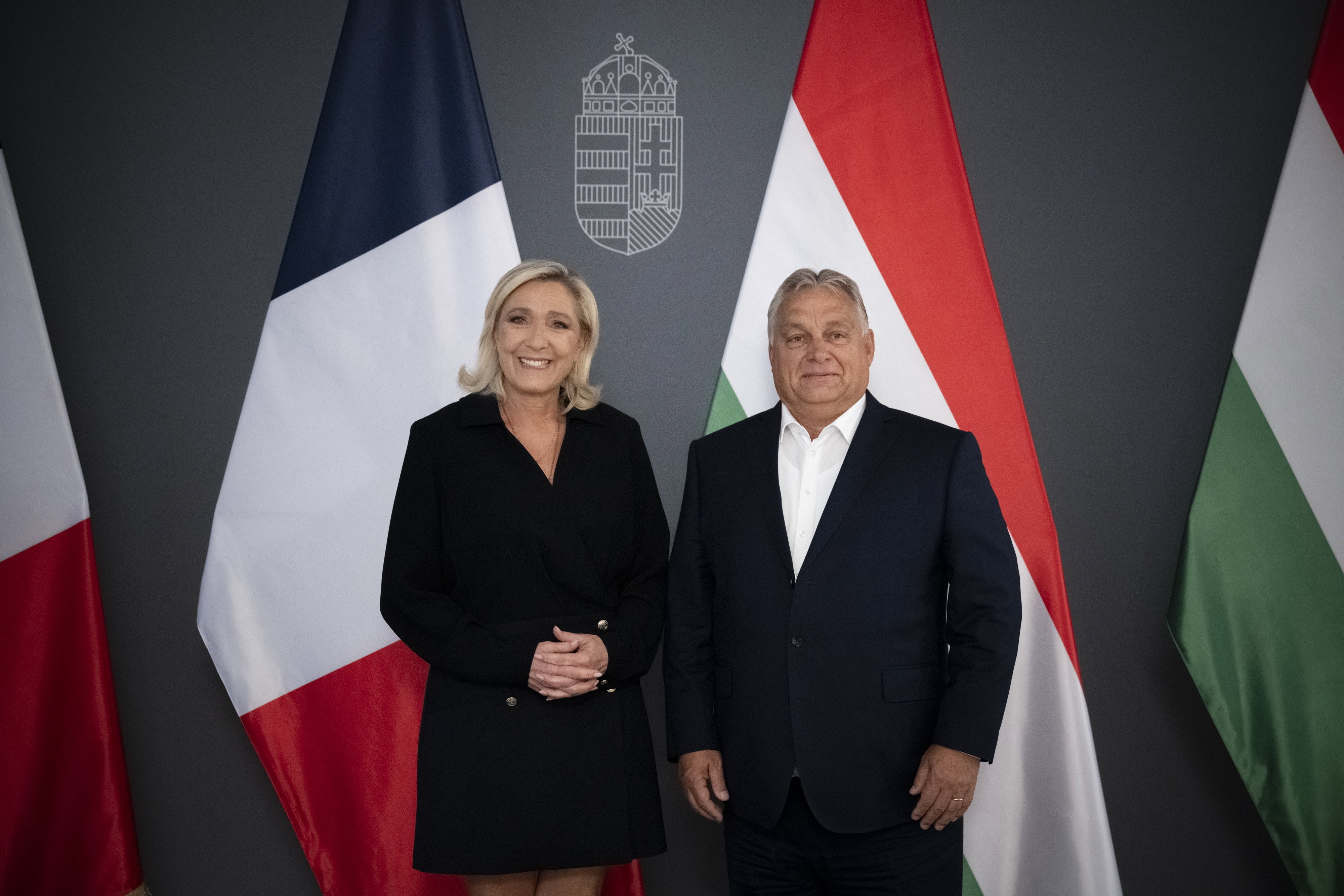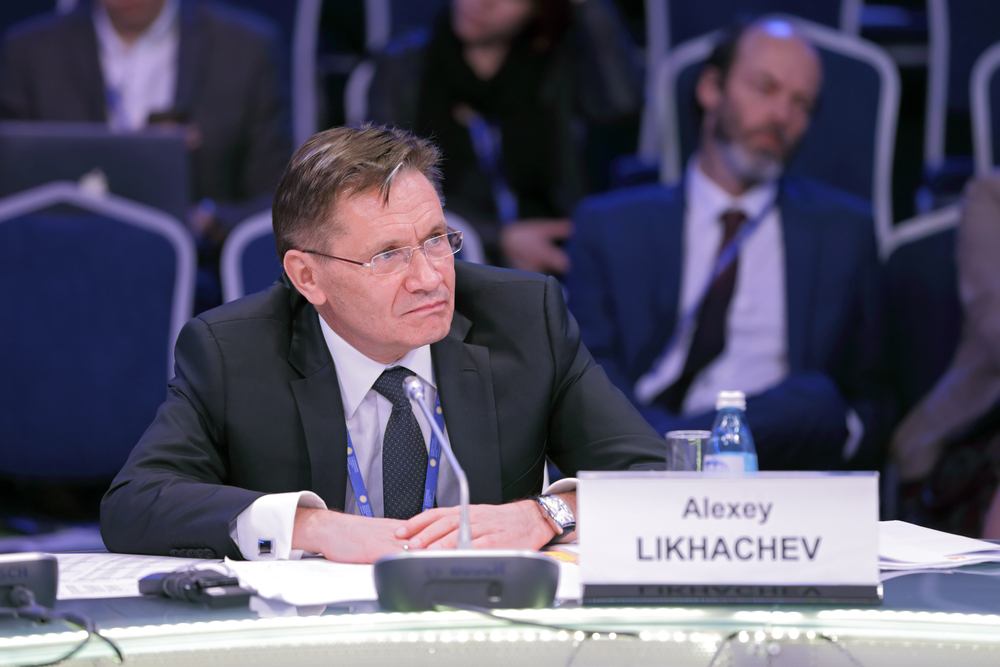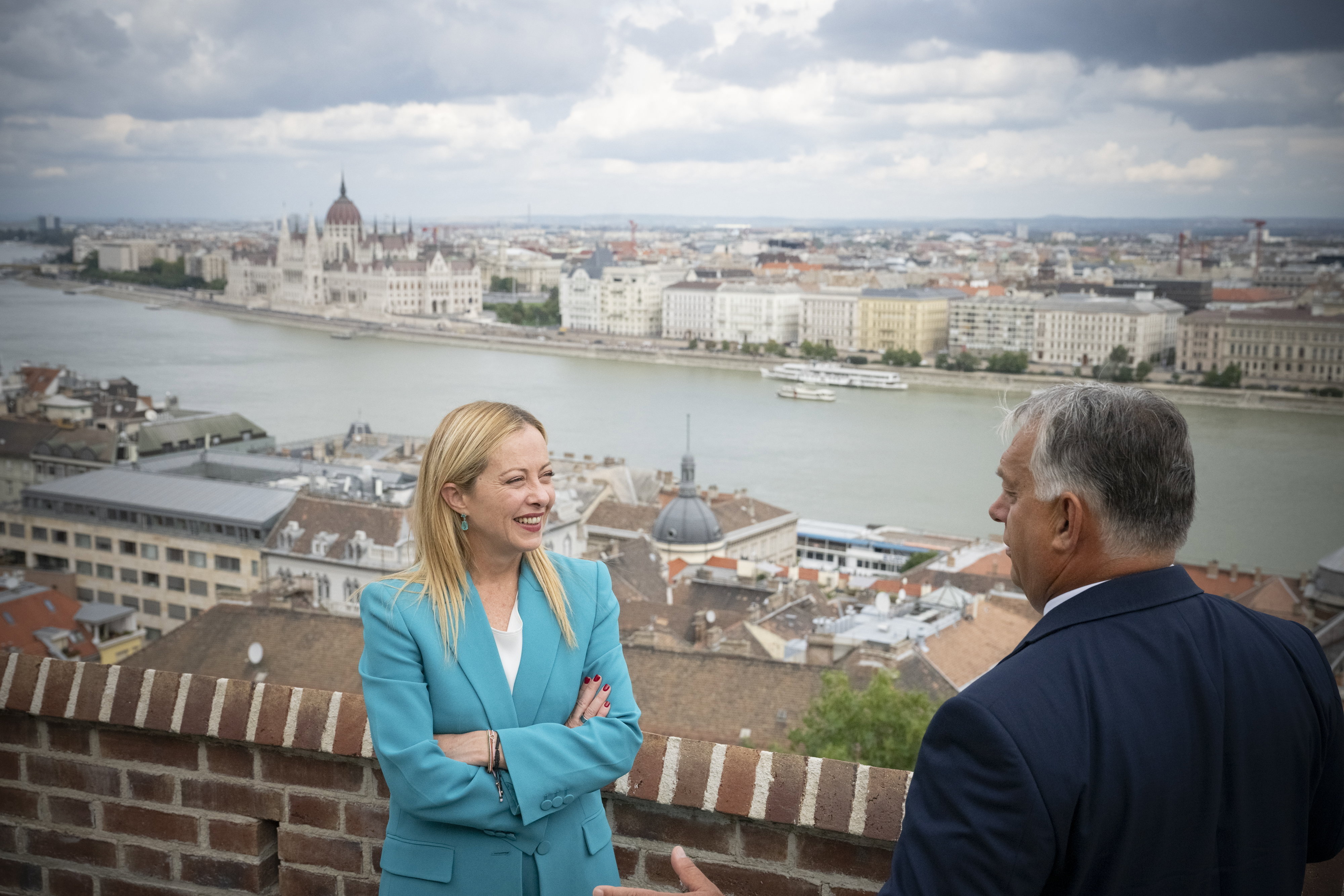Putin’s Budapest visit passes smoothly, but draws criticism

Russian President Vladimir Putin’s visit to Budapest Thursday to meet Hungarian Prime Minister Viktor Orbán went seamlessly, with the announcements made by the two leaders largely as expected, although the encounter has received widespread criticism, according to various reports.
The two leaders give a joint press conference on Thursday following their talks. (Photo: MTI/Zsolt Szigetváry)
Putin’s official visit to Budapest was almost a matter of routine. For the past few years, the two leaders have been meeting annually, alternating between Russia and Hungary. Putin’s last visit to Hungary was in 2015, last year Orbán traveled to Russia; thus, following the pattern, Orbán may well meet Putin next year in Russia.
Yesterday, the two leaders negotiated on expected issues. Orbán announced Hungary could take gas deliveries from Russiaʼs Nord Stream pipeline via Slovakia, according to Hungarian news agency MTI. The Hungarian leader also said Hungary is not seeking to renegotiate the conditions of a loan from Russia to upgrade its sole nuclear power plant.
Orbán said the question of stability affecting the deliveries of Russian gas through Ukraine was unavoidable and that Hungary had always been interested in diversifying delivery routes, MTI reported. Hungary can accept gas from the north through a little used interconnector with Slovakia, and Russia is open to this, he added.
Orbán talks against sanctions
Orbán, as expected, took a stance against the sanctions Russia has been under for the past few years, since its annexation of Crimea from Ukraine. Echoing the Foreign Ministry’s earlier statement, he claimed that bilateral trade has suffered to the tune of USD 6.5 billion over the course of three years as a result of the trade embargoes. Putin confirmed Orbán’s stance by saying that “objective facts” support the figures. However Orbán’s estimate is thought optimistically high by many, Hungarian online news portal 444.hu reported.
The portal noted, on the one hand, that the sanctions came into effect in the spring of 2014, therefore three years of data has not yet been collected. On the other hand, bilateral trade in 2013 was HUF 749 bln, which dropped to HUF 654 bln in 2014 and to HUF 476 bln in 2015. Supposing that the drop for 2016 amounts to the same as for 2015, 444.hu calculates that in total a little more than USD 2 bln could have been lost due to the sanctions. Additionally, 444.hu writes, total exports to Russia do not exceed USD 3 bln since the sanctions were put in place.
Portfolio.hu calculated over the weekend that the significance of the Russian market had dropped earlier in terms of exports as compared to German or regional markets, and that the EU sanctions against Russia include a significant number of products that Hungary does not export to Russia in the first place. Portfolio.hu also observes that the drop due to sanctions is probably lower than that given in the official statistics.
Paks credit not discussed this time
Orbán said that Hungary is not seeking to renegotiate the conditions of its mega-loan from Russia to upgrade its sole nuclear power plant, therefore renegotiating the credit agreement was never on the agenda for the talks, MTI reported. The agreement is good and the PM does not want to put it at risk, the agency added.
The loan from Russia will cover 80% of the EUR 12 bln cost of building two more blocks at Hungary’s sole nuclear plant in Paks, MTI reported, though Putin noted that Russia would even be prepared to finance 100% of the cost of the project. He added that the upgrade would create 10,000 jobs.
The credit Russia would be providing to Hungary has been on hold for the past few years, as the European Commission is currently investigating the matter. Orbán said that most of the obstacles to the start of construction of the Paks blocks had been removed, and that he hopes the EC will take a decision on this soon, allowing construction to start in 2018. According to recently cited unnamed EC sources, the Hungarian media has speculated that the EC could well approve the Russian credit.
Demo against Putin’s visit removed
Amid multiple road closures as part of the tight security measures for Putin’s visit, a planned protest by the opposition party Együtt (Together) on the corner of Kossuth tér, the site of the Parliament building where Putin headed immediately on arrival, was refused access by units of Hungaryʼs Counter Terrorism Center (TEK), a special police unit reporting directly to the interior ministry, despite holding a valid permit to demonstrate.
Együtt Péter Juhász criticized the decision as being “another step” against democracy in Hungary. He claimed that it is the democratic right of Hungarian citizens to demonstrate and express their opinions, especially if the demonstration was reported to the police in advance and a valid permit was issued.
SUPPORT THE BUDAPEST BUSINESS JOURNAL
Producing journalism that is worthy of the name is a costly business. For 27 years, the publishers, editors and reporters of the Budapest Business Journal have striven to bring you business news that works, information that you can trust, that is factual, accurate and presented without fear or favor.
Newspaper organizations across the globe have struggled to find a business model that allows them to continue to excel, without compromising their ability to perform. Most recently, some have experimented with the idea of involving their most important stakeholders, their readers.
We would like to offer that same opportunity to our readers. We would like to invite you to help us deliver the quality business journalism you require. Hit our Support the BBJ button and you can choose the how much and how often you send us your contributions.









